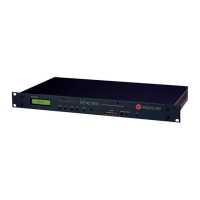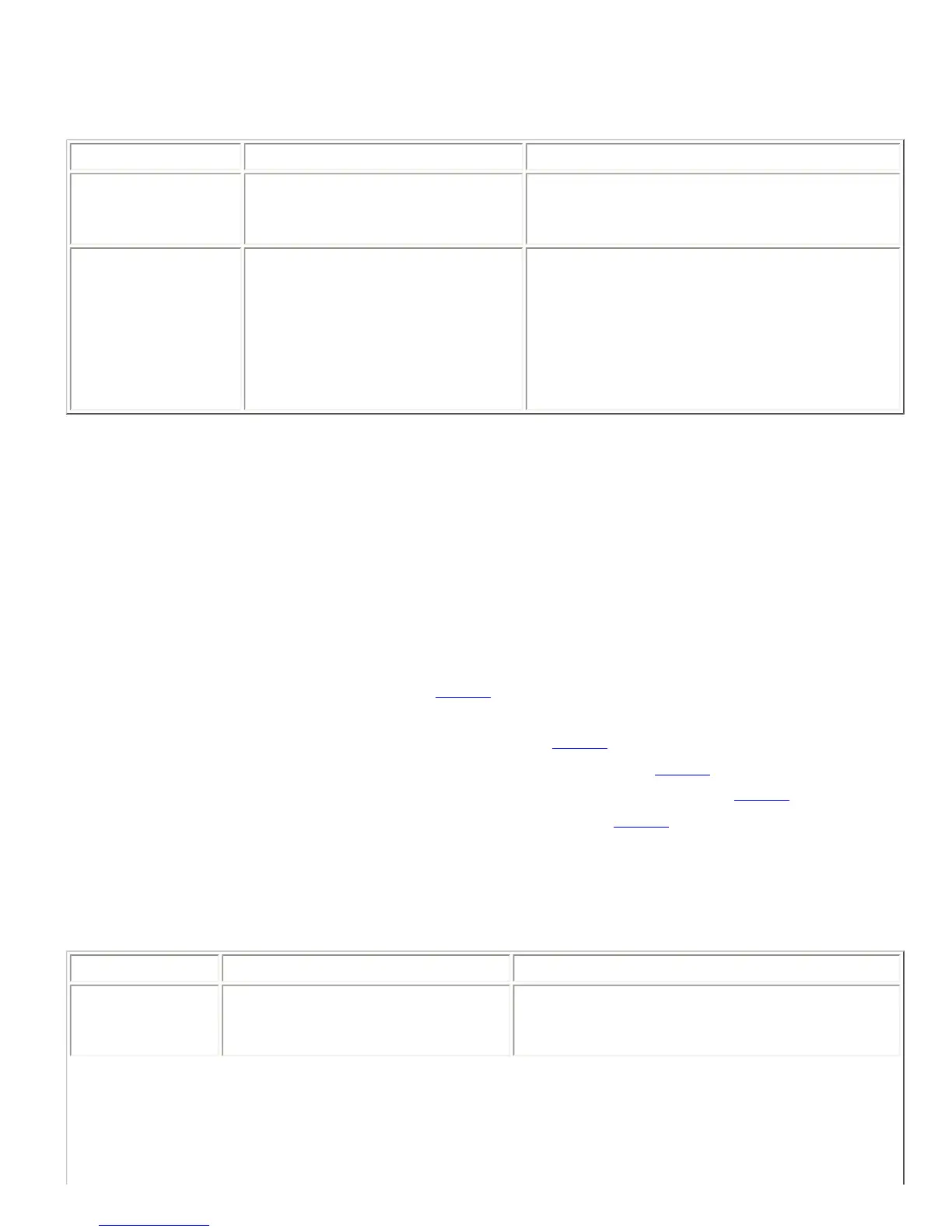This command is saved to non-volatile memory only as part of a preset. The state of this command
will be restored after power-up only if a preset is saved and that preset is set to be the power-on
preset.
Example Description Status Message
S01PEQOG1,2,-20
Set the gain of the parametric
EQ on output 1 , band 2 to -20
dB.
S01PEQOG1,2,-20
S01PEQOGB,1,?
Query current gain setting of
parametric EQ on output B ,
band 1.
S01PEQOGB,1,g , where g is the current
setting of the gain parameter for the
parametric EQ on output B , band 1. If the
gain parameter of this filter is set to the
same value given in the example above,
then the status message will be
S01PEQOGB,1,-20 .
8.126. PEQOS -- Set Slope Parameter for Specified
Parametric EQ Output Stage
This command sets or queries the slope parameter (in dB per octave) for the parametric equalizer
(EQ) filters on output channels 1, A, B, and T . Each channel has five bands of parametric EQ that can
be independently controlled.
For the Linkwitz-Riley filters, the slope can either be 12 or 24 (dB/Octave).For the low shelf and high
shelf filters, the minimum value for the slope parameter is 1, and the maximum value is 1.2 times the
current value of the gain parameter. See the
PEQIG command for information on the gain parameter.
This command has the same format and restrictions as the
PEQOA command except that only one
parameter, the slope, is specified instead of all the parameters. See the
PEQOA command for more
information. To set the slope parameter for an input parametric EQ filter, use the
PEQIS command.
To set all the parameters for an input parametric EQ filter, use the
PEQIA command.
This command is saved to non-volatile memory only as part of a preset. The state of this command
will be restored after power-up only if a preset is saved and that preset is set to be the power-on
preset.
Example Description Status Message
S01PEQOS1,2,1
Set the slope of the parametric EQ
on output 1 , band 2 to 1 dB per
octave.
S01PEQOS1,2,1

